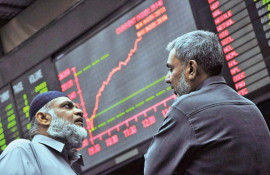
Shariah advice on structures of Islamic financial products and on compliance of such products with the Islamic law are a necessary pre-requisite and a regulatory requirement for financial institutions in many countries, including Pakistan. Consequently, Shariah costs are included in the transaction costs associated with Islamic financial products.
Financial fatwas play an integral part in the development of Islamic financial products, as without an explicit endorsement from a Shariah viewpoint such products cannot be successfully marketed.
A fatwa in the context of Islamic banking and finance is a religious opinion by a qualified Shariah scholar on structure of an Islamic financial product, like a mortgage, the conduct of management, like a fund manager, and operations of an Islamic financial institution, like an Islamic bank, determining their compliance or otherwise with the Islamic law.
Fatwa, if issued by an individual scholar or jurist, is non-binding and therefore, its utility is rather limited in this sense. However, if a collective body of scholars issues a fatwa under an enforcement regime, like a government or another such authority, it could be made binding on the market participants.
Legislation in Malaysia makes it compulsory, not only for all market players (Islamic banks and Takaful companies) but also for the judges hearing the cases related with Islamic banks and finance in Malaysian courts, to abide by the fatwas and Shariah rulings publically issued by the Shariah Advisory Council of Bank Negara Malaysia, the central bank.
In Pakistan, the Shariah Advisory Board of the State Bank of Pakistan issues fatwas to govern Islamic banking operations in the country. The legal standing of such fatwas has yet to be tested in a court of law.
Many observers of Islamic finance frequently refer to what is now rather cynically known as “Fatwa shopping.” Those who use the term, refer it to the process of an institution approaching a number of Shariah scholars (simultaneously or one after one) to solicit their Shariah advice on an individual basis and then choosing the one, which is the least restrictive or most liberal. This notion of Fatwa shopping is considered as bad and in fact most Shariah scholars discourage this practice.
If this is what people mean by Fatwa shopping then it should not be entirely wrong, as long as the quality of Shariah advice thus obtained fulfils strict Shariah requirements. This indeed has cost implications for the party seeking Shariah advice but if one is willing to pay relatively high costs of procuring Shariah advice, it should be left to the individual to do so.
In the absence of the Islamic law in most countries (including the ones with majority Muslim population), it is important that there is an independent Shariah verification of the products, practices and operations of Islamic financial institutions and other institutions offering Islamic financial services.
Ideally, this verification should come from a government authority like a central bank or any other financial regulator.
The best option remains a government authority, as it has enforcement power. Other organisations are ineffective unless the governments accept their Shariah Standards and make them binding on the institutions offering Islamic financial services.
In a less ideal scenario, the Shariah verification function must be offered by professional Shariah advisory firms registered with a regulator (like the Securities and Exchange Commission of Pakistan or the State Bank).
It is important to note that a new fatwa is required only when there are no clear guidelines available on a product. Thus, now that setting up an Islamic equity or mutual fund has received mainstream relevance in a number of countries, there is no need for obtaining a new fatwa from a Shariah board or a Shariah scholar. However, it remains important that the fund/transaction is supervised and monitored by a competent body to ensure its strict adherence with Shariah.
There is sometimes an over-emphasis on the importance of fatwa. For instance, there are some training providers in Islamic finance, who advocate the issuance of a fatwa on the Shariah authenticity of the training materials and their delivery. While importance of Shariah authenticity of the content and delivery of Islamic finance training cannot be underestimated, this is nevertheless needlessly stretching the concept of fatwa and its modern applications.
The writer is an economist and a PhD from Cambridge University
Published in The Express Tribune, September 9th, 2013.
Like Business on Facebook, follow @TribuneBiz on Twitter to stay informed and join in the conversation.
COMMENTS (12)
Comments are moderated and generally will be posted if they are on-topic and not abusive.
For more information, please see our Comments FAQ



1732263441-0/BeFunky-collage-(81)1732263441-0-165x106.webp)
1732263755-0/musk-(3)1732263755-0-165x106.webp)












@Professor, “Interest” is merely the time-value of money. If ‘interest’ is banned, so should inflation. "
There should be a ruling from "relevant authority" as to indexing the prices is Halal to minimize, if not eleiminate the impact of inflation.
Peace Cheers
I am Stamping this on stone , one day Pure 100% Islamic Banks would ruin traditional interest based banking , commercial bank and semi-islamic banks. Because as financial professional if not 100% Islamic banks like Meezan and Dubai Islamic Banks atleast working 60 - 70 % on Shariah Law . Think this as a beginning. And, the profit share islamic banks would pay that would be out of your mind (23% in coming 5 years) ....... In Pakistan just 2% Islamic banks today. Because this is business based economy where profit and losses on equal basis.
@roadkashehzada "gold buys same number of bread loafs as it used to buy thousands of years ago". In 1994, a loaf of white bread(1lb) cost ~$.75(0.0563g) and in 2013 ~$1.45 (0.0296g). Similarly in 1994 a gallon of milk cost $2.5 (0.187g) and in 2013 it cost $3.5 (0.0714g). I have used US data since its easier to find but overall trend should be similar everywhere.
Value of gold varies depending on its demand and mining (its price has dropped 20+% during last year and during last decade its price increased more than 500%). Any currency backed by gold will have strong deflation over long term and prices of everything will keep falling and people would spend a lot less on local produce compared to imported stuff. Import bill will increase (since people who have money would be in better position to buy foreign stuff) and export earnings decrease (labour force will be too expensive to employ unless its very productive and its productivity keep increasing, which isn't possible) since currency will be too strong.
I don't like interest but its the most effective way of giving people who don't have money a chance to improve their lives. Interest rate as well as criteria for recipients can and should be more closely controlled but without interest in some form, very few people will be willing to loan anyone any money for long duration.
The only way to lend money without any interest (no matter what a bank calls it) is charity, which not enough people are willing to do for complete strangers.
@More work: The countries that are propagating this type of banking have oil exports to back up their economic system. Pakistan doesn't have that luxury.
@Professor: that goes back to paper money or the money not sufficiently backed by gold. if money is 100% backed by gold there wont be any inflation hence no need for interest as gold buys same number of bread loafs as it used to buy thousands of years ago.
A rose is a rose by whatever name you call it. Interest is interest by whatever name you wish to call it, profit and loss sharing, Islamic, non-Islamic, why waste time.
"Interest" is merely the time-value of money. If 'interest' is banned, so should inflation. Without interest the value of money will be eroded by inflation. How do you expect world financial institutions to reconcile with this state of affairs? This is probably one of the reasons that Islamic nations are finding it hard to integrate with the rest of the world.
Can anyone tell us the difference between Fixed rate interst compounded interest financial markets based interest and and the interest called profit If interest is prohibited then it should be applied to all of them“When it is a question of money, everybody is of the same religion.” - Voltaire -
I do not understand when such people will stop naming, renaming and justifying these costs. These financial mullahs cannot accept the fact that interest runs the world and does more good than bad and is here to stay no matter what you do.
How would that affect the foreign investments that Pakistan sorely needs.Can't clerics keep themselves into the religious sphere than interfering with every institution of the country.